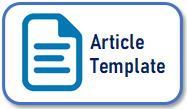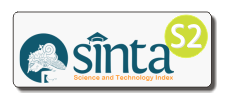The Impact of Covid-19 on Islamic Economics and Finance Industry: Text Analytics using R
DOI:
https://doi.org/10.14421/grieb.2021.092-05Keywords:
Covid-19, Islamic Economics, Islamic Finance, Text Analysis, and R.Abstract
Covid-19 not only has an impact on the financial industry but also generally affected on the world economy. In the financial industry, currently, Islamic finance is growing fast. Thus, this study aims to determine the development of research on the impact of Covid-19 on the economy and the Islamic finance industry in the world by analyzing a study of 47 documents from the 2020-2021 period on the Scopus database using text analysis using R-studio. This study provides an analysis of keywords that are often used in the topic and provides an overview of the analysis of the most relevant words, word treemaps, co-occurrence networks, thematic maps, and conceptual structures. The results of this study indicate that Covid-19 has harmed several sectors of the Islamic economy and finance, including Islamic banking, Islamic capital markets, Islamic microfinance institutions, and tourism. In addition, the results of this study also provide several recommendations for several industries that have been negatively affected by the Covid-19 pandemic.
References
Arfah, A., Olilingo, F. Z., Syaifuddin, S., Dahliah, D., Nurmiati, N., & Putra, A. H. (2020). Economics during global recession: sharia-economics as a post covid-19 agenda. Journal Of Asian Finance, Economics And Business, 7(11) , 1077–1085.
Barbier, E. B., & Burgess, J. C. (2020). Sustainability and development after Covid-19. World Development, 135, 105082.
Bastani, P., Sheykhotayefeh, M., Tahernezhad, A., Hakimzadeh, S. M., & Rikhtegaran, S. (2020). Reflections on Covid-19 and the ethical issues for healthcare providers. International Journal of Health Governance, 25(3), 185-190.
Benamraoui, A. (2021). The world economy and Islamic economics in the time of Covid-19. Journal of King Abdulaziz University, Islamic Economics, 34(1), 67-78.
Chen, M., & Xin, Y. (2020). Research on the impact of Covid-19 on China’s capital market. Proceedings of the 2020 2nd International Conference on Economic Management and Cultural Industry (ICEMCI 2020).
Choudhury, M. A. (2021). Islamic economics and Covid-19: The economic, social and scientific consequences of a global pandemic, 1-156.
El-Gohary, H. (2020). Coronavirus and halal tourism and hospitality industry: Is it a journey to the unknown? Sustainability, 2(26).
Fernandes, N. (2020). Economic effects of coronavirus outbreak (Covid-19) on the world economy. Available at SSRN 3557504c
Fu, M., & Shen, H. (2020). Covid-19 and corporate performance in the energy industry. Energy Research Letters, 1(1), 12967.
Hanoatubun, S. (2020). Dampak Covid-19 terhadap perekonomian Indonesia. Journal of Education, Psychology, and Counseling, 2(1), 2716-4446.
Hasan, Z. (2020). The impact of Covid-19 on Islamic banking in Indonesia during the pandemic era. Journal of Entrepreneurship and Business.
Hidayat, S. E., Rafiki, A., & Nasution, M. D. (2020). Halal industry’s response to a current and post-Covid-19 landscape and lessons from the past. Journal of Islamic Marketing, 1-15.
Hudaefi, F. A., & Beik, I. S. (2021). Digital zakah campaign in time of Covid-19 pandemic in Indonesia: A netnographic study. Journal of Islamic Marketing, 12(3), 1-20.
Hudaefi, F. A., Caraka, R. E., & Wahid, H. (2021). Zakat administration in times of Covid-19 pandemic in Indonesia: A knowledge discovery via text mining. International Journal of Islamic and Middle Eastern Finance and Management, 1-16.
Kebijakan Stimulus OJK pada Sektor Jasa Keuangan Antisipasi Dampak Virus Corona (2020, March 31). Retrieved from https://www.ojk.go.id/id/berita-dan-kegiatan/info-terkini/Pages/Kebijakan-Stimulus-OJK-pada-Sektor-Jasa-Keuangan-Antisipasi-Dampak-Virus-Corona.aspx
Mann, F. D., Krueger, R. F., & Vohs, K. D. (2020). Personal economic anxiety in response to Covid-19. Elsivier Public Health Emergency Collection.
Mateev, M., Tariq, M. U., & Sahyouni, A. (2021). Competition, capital growth and risk-taking in emerging markets: Policy implications for banking sector stability during Covid-19 pandemic. PLOS ONE, 1-36.
MSCI Saudi Arabia Domestic IMI Islamic custom minimum volatility index (USD) (2020, April 30th). Retrieved from https://www.msci.com/documents/10199/4c316ea8-7161-47f5-843a-be64c11c73c2
Mubarok, F., & Al-Arif, M. N. (2021). Pandemic attack and Islamic atocks index: A cross country analysis. Jurnal Ekonomi Malaysia, 55(1), 1-11.
Nicomedes, C. J. C., & Avila, R. M. A. (2020). An analysis on the panic during Covid-19 pandemic through an online form. Journal of Affective Disorders, 276, 14-22.
Pandya, V. M. (2012). Comparative analysis of development of SMEs in developed and developing countries. International Conference on Business and Management, 6-7
Purba, J. H., Fathiah, R., & Steven, S. (2021). The impact of Covid-19 pandemic on the tourism sector in Indonesia. Jurnal Aplikasi Ekonomi dan Bisnis.
Robe, M. 2013. The dynamic and importance of SMEs in economy. The USV annals of economics and public administration, 13(17), 84-89.
Rusiadi, Aprilia, A., Adianti, V., & Verawati. (2020). Dampak Covid-19 terhadap stabilitas ekonomi dunia (Studi 14 negara berdampak paling parah). Jurnal Kajian Ekonomi Dan Kebijakan Publik, 5 (2), 1-10.
Samhan, H. (2020). The impact of the (Covid-19) pandemic on Islamic financial institutions. Journal of King Abdulaziz University: Islamic Economics, 33(3), 75-86.
Sumner, A., Hoy, C., & Juarez, E. O. (2020). Estimates of impact of Covid-19 on global poverty. Wider working paper 2020/43: Available at: https://www.wider.unu.edu/sites/default/ files/Publications/Workingpaper/PDF / wp2020-43.pdf. Accessed on 14 April, 2020.
Sutrisno, S., Panuntun, B., & Adristi, F. I. (2020). The effect of Covid-19 pandemic on the performance of Islamic bank in Indonesia. Jurnal Equity.
Trisnowati, Y., & Muditomo, A. (2021). Covid-19 and stock market reaction in Indonesia. Journal of Accounting and Investment, 22.
World Bank. (2020). Small and Medium Enterprises Finance. Available at: https://www.worldbank.org/en/topic /smefinance. Accessed on 31 Juli, 2021.
Yang, Z., & Xin, Z. 2020. Heterogeneous risk perception amid the outbreak of Covid‐19 in China: Implications for economic confdence. Applied Psychology Health and Well‐Being: 1-19.
Zaimovic, A., & Dedovic, L. (2021). World economy and Islamic finance: Comparison of government policies during the global financial crisis and the Covid-19 crisis. JKAU: Islamic Econ, 34(1), 79-92.
Zulfitra, Ganar, Y. B., Agrasadya, Dinantara, M. D., Apriansyah., M., & Sahroni. (2020). The reaction of the sharia stock market in the early days of the Covid-19 pandemic in Indonesia. Sys Rev Pharm , 1516-1526.
Downloads
Published
Issue
Section
License
Global Review of Islamic Economics and Business is licensed under a
Creative Commons Attribution-ShareAlike 4.0 International License



















